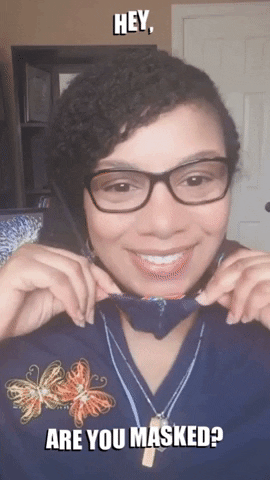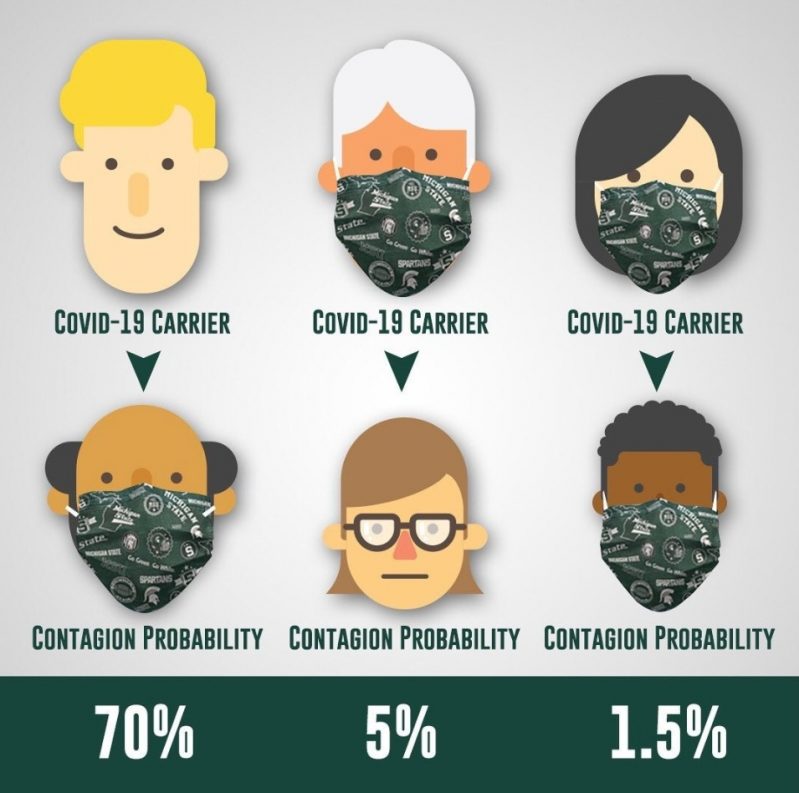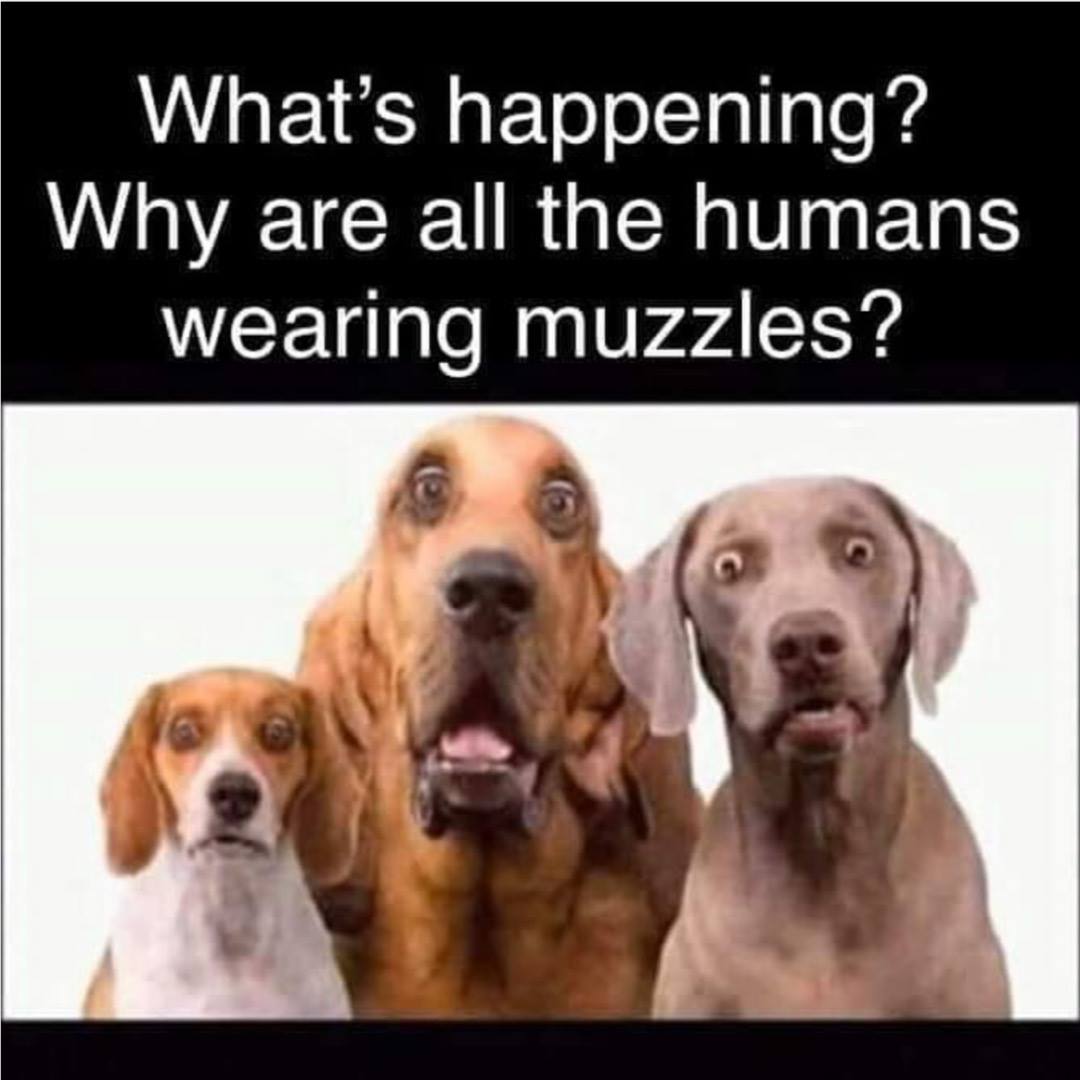 We’ve always taken our masks seriously in New Orleans.
We’ve always taken our masks seriously in New Orleans.
Masks are mainstays of our culture – from Mardi Gras to Halloween and on many occasions in between. Costume closets in the Big Easy inevitably brim with creative face coverings. And rarely do we need much excuse to don one.
So I’m not surprised that New Orleans, in my recent experience, is handling the current mask mandate pretty well. Anecdotally, I’m seeing most New Orleanians wear masks, and those who don’t never seem to be judgmental of those who do.
Conversely, here along the Gulf Coast of Mississippi, where I’ve been self-isolating since March, few people wear masks. And perhaps it’s my imagination, but they seem to look askance at those of us who do. I don’t feel condemnation, but bemusement, from the naked faces I exchange glances with here on the Gulf Coast. They seem to be wondering why I bother.
I have to say that confounds me – the idea that anyone with a link to the internet or access to a TV doesn’t understand the basic science behind mask wearing during a pandemic. According to Healthline, researchers have found that masks have led to a more than threefold reduction in the amount of virus infected people spray into the air.

This meme making the social media rounds is misleading, according to AFP Fact Check. Masks definitely reduce virus spray, but just how much is hard to quantify.
I do get the symbolism of masks, and why wearing – or not wearing – one might construe personal attitude or philosophy, whether moral or political. During the first season of Everyday Wonder, the podcast I co-host with author/shaman Brett Will Taylor, we devoted an episode to masks. Their meaning, their history, their power. Does a mask conceal or reveal? Does the mask you choose hide your imperfections, or show who you truly are, or who you want to be?
In New Orleans, of course, we use masks to channel our creative impulses, to say something about our psyches. Local artists dove into the innovative side of masking early on. Kelsey Campion added tie-dye face masks to her colorful headwrap line; Jill Townsend supplemented her sequin apparel line with face coverings; photographer Jennifer Anne turned from portrait artist to mask maker. Jazz Fest regular Kate Beck began turning her hand-made fabrics into face masks (with matching hats), while Ellen Macomber came up with a mask design that includes a mouth hole for a drinking straw.
Couture aside, even common surgical masks are getting outsized scrutiny these days. Does wearing one project political attitude? Does it make you pro- or anti-government?
Does it make you …. feminine? In a thoughtful current article in the Atlantic, Harvard medical professor Julia Marcus talks about “The Dudes Who Won’t Wear Masks.” It often tends to be a guy thing, she points out. She talks about the need to cajole, not compel people to wear masks. Shaming, she argues, isn’t the way forward.
I get it. And I’m trying to understand. Really I am. But as a 66-year-old woman who would really like to live the remainder of her life out in the community, and not in her living room, I have a stake in whether or not you wear a mask. This is a public health issue, not a political statement. People who “don’t want the government telling them what to do” might as well shed their shirts and shoes in restaurants, or stop wearing seatbelts. Of course, a seatbelt keeps you safe; a mask keeps me safe.
I honestly believe that if Americans did nothing more than mask up when they go out, we would all be able to get back to something close to normal and keep the pandemic curve flattened. And I’m in the majority: In a May study by the CDC, 60 percent of Americans said they wear masks when they go out.
But what’s with that other 40 percent? It may have to do with bonding (or, as we all learned in high school, peer pressure). In times of heightened uncertainty, humans tend to seek a sense of belonging, said David Abrams, a professor of social and behavioral sciences at the NYU School of Global Public Health, in a recent article in MarketWatch. One group finds solidarity in not wearing masks, he explains, while others bond over the idea that masking is “an act of altruism and a way of helping each other out.”

There’s also an element of denial in eschewing masks. Abrams says that he suspects many anti-maskers “don’t want to admit this is the new normal. They want the old America they’re used to.”
Don’t we all. I can remember when my dad, back in the ‘80s, resisted putting my kids in car seats. His kids had never had car seats, after all, and he was a good driver. He ultimately realized it was simply an easy way to protect loved ones from unforeseen danger. “I was wrong,” he told me much later.
I hope that, likewise, the pandemic crowd comes around. In New Orleans, an early hot spot, we know the realities of this disease. Most of us know someone who had COVID-19; many of us know someone who died from it.
In Mississippi, not so much. Perhaps that’s why residents along the Gulf Coast seem so blasé about masks and social distancing. Bar balconies in Bay St. Louis were packed with revelers last weekend, and shoppers at the Pass Christian Walmart came and went freely, faces uncovered. Meanwhile, at the Walmart on Tchoupitoulas in New Orleans, masks are required, hand sanitizer and cart wipes are offered to shoppers and one-way paths into and out of the store are monitored.
I hope it won’t take disease spikes and overflowing hospitals to change America’s mask-resistant ways. For once, New Orleans is ahead of the curve. Perhaps we can introduce the world to what we’ve known for centuries: the benefits of masking. Except now it’s not about psychology, but epidemiology.
 NOLAbeings
Multimedia artist Claire Bangser created NOLAbeings as a portrait-based story project that marries...
NOLAbeings
Multimedia artist Claire Bangser created NOLAbeings as a portrait-based story project that marries...
 Data corner: Adobe Suite (create a PDF, social media graphic, presentation, edit a photo and video
Data corner is where you go to work with analytics and top tech skills. It takes on everything from PERL and SQL to Canva and Sprout Social.
Data corner: Adobe Suite (create a PDF, social media graphic, presentation, edit a photo and video
Data corner is where you go to work with analytics and top tech skills. It takes on everything from PERL and SQL to Canva and Sprout Social.
